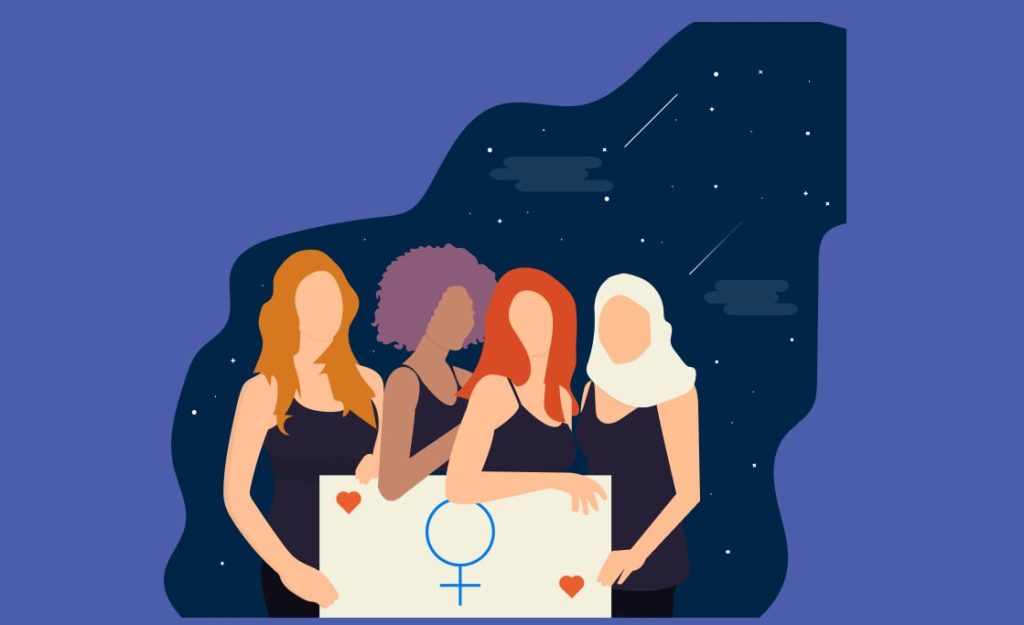International women’s day is celebrated on 8th March every year, it’s a day to acknowledge the cultural, social, and economic achievements of women in the world. There is a major shift in attributes towards women and society’s thoughts about women and their capabilities. If we go back 100 years, a lot has changed. Earlier, women were not given the freedom to express their opinion. Since then, women have significantly made themselves a position in the world, Even though women are still not paid equal to their male counterparts and are still not equal in numbers in business, politics, and education. However, great improvements have been made since then.
International Women’s Day is a global celebration that also marks a call for being sensitive to gender parity and collective effort to drive a gender-equal world.
The first time when women’s day was ever celebrated was in 1911 and supported by over a million people. Today, Women’s International Day is celebrated everywhere and is not just limited to organizations, groups, or countries.
The Role of Women in the Legal Industry
After the Sex Disqualification Act removal got royal assent in 1919, it paved for all those women who wanted to get into a male-dominated legal industry and become lawyers for the first time in the UK; they were awarded degrees and appointed as legal professionals. Soon Carrie Morrison became the country’s first solicitor in 1922 and, followed by Helena Normanton, was the first woman to practice as a barrister in the same year.
If we talk about recent achievements out of many, one of them is Brenda Hale, Baroness Hale of Richmond, who was appointed as the UK Supreme Court’s first female President.
Brenda Hale’s appointment to President of the Supreme Court represents a historic achievement and a resounding victory for gender equality in history for women’s achievements.
While there have been many advances in recent years in favor of women, amid to covid crisis women faced many challenges such as pay gaps for all genders while working from home. This is just a mere explanation among all the other challenges, even though there were many downfalls as working women and gender disparity, women came out as phoenixes always did. Even though there were countless challenges, there are many famous names who are women in the legal industry; Hillary Rodham Clinton- Many people know her as a former first lady and presidential candidate, but some may not know that she holds a career in the legal field. Ruth Bader Ginsburg- Ginsburg was appointed a judge of the U.S. Court of Appeals for the District of Columbia Circuit in 1980, leading to her eventual nomination and confirmation as an Associate Justice of the U.S. Supreme Court. Many such names prove women’s capabilities and impeccable achievements in the legal industry.
Similarly, in the legal tech industry, women are moving forward by making an impeccable impact on the industry by helping the legal industry and countless law practitioners in making their practice advanced, more efficient and smart. Among many names, Catherine Bamford is one such name: CEO of Bamlegal, Leila Banijamali, Co-Founder and CEO at Symbium and Anna Lozynski, helping lawyers to adapt to the digital age.
What can we do?
We all have a collective responsibility to drive gender parity. International women’s day doesn’t just belong to a feminist organization or some organization but to everyone who believes in human rights.
If you have law practice or a business, empower women through implementing policies that provide equal opportunities and rights to women in the industry.
CaseFox is a firm believer in diversity and inclusion for the future. We, as a global brand, will leverage our resources to become more conscious of working women and gender equality.
CaseFox strongly believes in empowering women and driving gender parity. On the occasion of International Women’s Day, we are offering a flat 25% Off from 7th March to 14th March 2022. Being more conscious of women’s rights is an effort that will go way ahead. All these efforts will support diversity and inclusion

